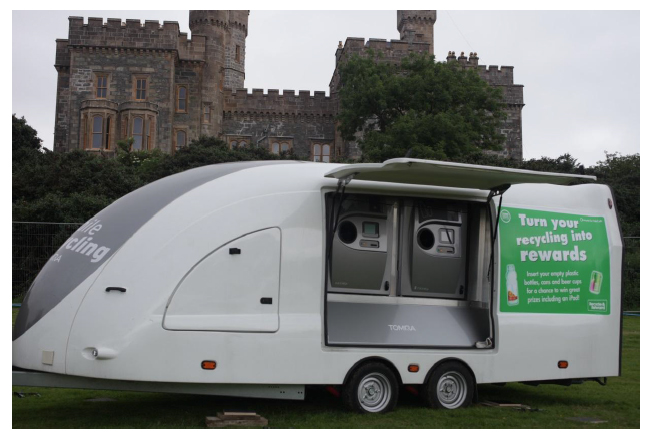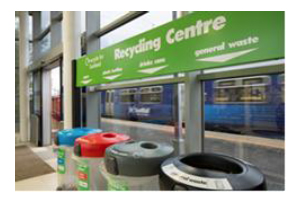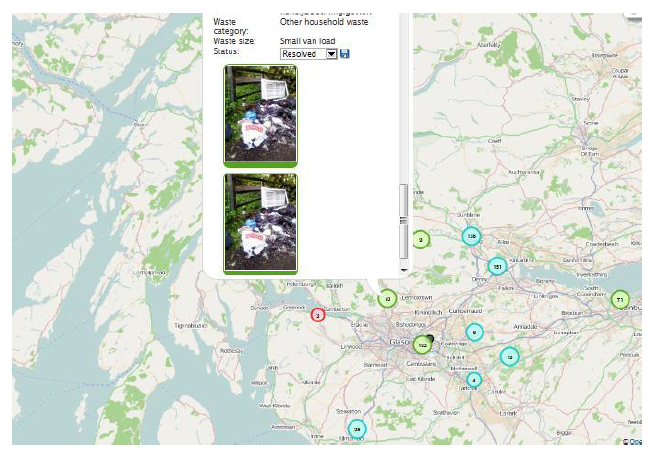Towards a litter-free Scotland: a strategic approach to higher quality local environments
This national litter strategy sets out how Scotland can significantly reduce litter and flytipping and support cleaner, safer communities.
4. Interventions
4.1 The strategy identifies action to encourage personal responsibility through three intervention themes: information, infrastructure and enforcement.
4.2 Delivery partners are asked to develop their approaches to taking these forward.
Information - improved sources, consistency and nature of messages
4.3 Effective information and engagement can help develop a shared understanding of acceptable and unacceptable behaviour. This is central to motivating people to stop littering and flytipping and to recycle more.
4.4 Providing accessible, consistent information educates people to recognise their littering and flytipping habits, and motivates them to do the right thing.
| Intervention 1. Communication |
|---|
| The goal is to communicate effectively and accessibly about litter, with consistent messages that engage the public and motivate behaviour change. We ask delivery partners to enhance their communications activities and to make it clear why people should take personal responsibility for their waste. We will:
|
| Intervention 2. Education |
|---|
| Children and young people should have the opportunity to understand the importance of environmental quality, and the benefits of resource efficiency. We will work with council education services and organisations such as Education Scotland and Young Scot to develop initiatives and resources that encourage young people to do the right thing with waste. We encourage delivery partners to contribute to the development of materials and to include these within their existing education projects. The approach will explore how to build on or complement existing environmental and sustainability education initiatives, including EcoSchools and Learning for Sustainability. |
| Intervention 3. Local community action |
|---|
| Empowered local communities can take greater ownership of the quality of their local environments. Communities can take preventative action such as building fences to restrict access to flytipping sites, or work with local businesses to educate their customers. Community action includes local clean ups. High-profile examples of these are Keep Scotland Beautiful's Clean Up Scotland initiative and the Marine Conservation Society's Beachwatch programme. There are also highly-successful local initiatives which play a significant role in raising awareness and improving the quality of local environments. We will discuss opportunities with delivery partners, particularly those in the third sector. We expect this will include:
We will encourage delivery partners to seek the input of the third sector and local communities when developing their delivery plans. |
Infrastructure - facilities and services to reduce litter and promote recycling
4.5 Behaviour can be influenced by the way in which bins are specified, located and serviced, by product and packaging design, by improved guidance, and through targeted funding.
4.6 When facilities, services and processes are designed to be accessible it makes it easy for people to do the right thing with waste.
| Intervention 4. Opportunities for recycling |
|---|
| Litter can be turned into a resource for Scotland. We want to make it easy for people to recycle in public places. We will work with our delivery partners to increase Recycle on the Go facilities and explore how to boost the quantity, quality and range of material recycled. This will include:
|

Figure 5: Recycle and Reward machine at the 2013 HebCelt Festival.
| Intervention 5. Product design |
|---|
| Packaging plays an important role in protecting products. We believe some product and packaging design can be developed in ways that reduce litter and help people to take personal responsibility for their waste. We will:
We will work with delivery partners including the:
|
| Intervention 6. Service design |
|---|
| Business procedures, staff training and customer engagement can encourage personal responsibility for disposal of waste. We will work with businesses, local authorities and others to:
We will support businesses through the communications toolkit. Businesses which are committed to sustainable growth, including efforts to tackle litter and flytipping, can receive recognition for their efforts through a nationwide scheme: the Resource Efficiency Pledge. |
| Intervention 7. Guidance review |
|---|
| The Scottish Government provides formal guidance to organisations on what their roles and responsibilities are in relation to litter and flytipping. We will review the Code of Practice on Litter and Refuse (Scotland) 2006 ( COPLAR) and work with delivery partners to develop effective approaches to delivery that reflect the priorities in this strategy and:
We will:
|

Figure 6: Recycle on the Go facilities.
| Intervention 8. Future funding and support |
|---|
| We will provide funding and/or advice for projects which aim to reduce litter and flytipping through information, infrastructure and enforcement interventions. We will:
It will be a condition of Zero Waste Scotland's litter, flytipping and Recycle on the Go funding that the recipient land managers/businesses commit to including litter and flytipping in delivery plans. |
| Intervention 9. Research and monitoring |
|---|
| Effective information gathering and analysis means that everyone can understand which measures work most effectively, and will help to prioritise and develop targeted interventions accordingly. We will continue to develop an evidence-based approach based on problem materials. This will include: where issues occur, why, and how these might be prevented. We will also develop an approach to quantifying the scale of problems, and the impacts of actions to tackle them. We will work with delivery partners to develop this further. This will:
We will take into account the evidence and monitoring systems that already exist. We will review the strategy in 2016/17 and 2020. |
| Intervention 10. Flytipping |
|---|
| There are already strong enforcement disincentives for flytippers, including the recent increase in fixed penalties and new SEPA enforcement sanctions. Most of the actions in this strategy will have an impact on flytipping as well as litter. Furthermore, the current 'FlyMapper' [15] pilot project aims to improve understanding of the nature, scale and geographical distribution of flytipping incidents on public and private land. Flytipping is understood to be a deliberate act which may be motivated by the desire to avoid waste disposal or recycling costs. Action to improve our understanding of the factors which contribute to flytipping behaviour will allow us to bring forward further, better-informed, interventions in the future. |

Figure 7: FlyMapper pilot project - example locations of flytipping incidents.
Enforcement - strengthening the deterrent effect of enforcement
4.7 For some, the realisation that there are financial penalties for littering and flytipping, and a risk of being caught, is a significant motivator.
4.8 Effective legislation, enforcement and related communication are vital to reinforcing the deterrent effect.
| Intervention 11. Strengthen the enforcement system |
|---|
| We want to build on our recent actions (see 'Actions already underway' at section 3) to boost the effectiveness of enforcement as a deterrent. We will look for a suitable opportunity to legislate to remove barriers to enforcement in littering from vehicles. Consultation on the strategy showed general support for further legislation, which we will discuss with key agencies including Police Scotland, Crown Office and Procurator Fiscal Service and local authorities:
We will continue to encourage organisations with enforcement powers to use them. We will also discuss with other public bodies whether they would benefit from having the power to issue fixed penalties for litter and flytipping. |
| Intervention 12. Enforcement staff training |
|---|
| Supporting enforcement staff to become confident and proficient in their understanding of legislation and application of correct procedures will lead to more effective delivery that:
We will develop an employers' guide to the content and standards they should specify when commissioning training. It will include:
We will work with local authorities and other statutory bodies to review current approaches, and develop collaborative projects that help us better understand the impact of enforcement practices - including their deterrent effect. This will help inform effective models and guidance which will support delivery. |
Contact
There is a problem
Thanks for your feedback